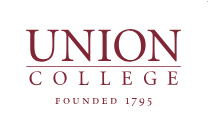Morgan, Lewis Henry
Name
Morgan, Lewis Henry
Year
1838 – 1840
Intro bio
After studying at Cayuga Academy, Morgan entered Union College as a junior in 1838 and graduated in 1840.
Full Bio
Lewis Henry Morgan, an ethnologist and one of the first American scientific theorists in the field of anthropology, was born in Aurora, New York in 1818. After studying at Cayuga Academy, Morgan entered Union College as a junior in 1838 and graduated in 1840. He returned to Aurora after graduation and began studying law. While practicing law, Morgan became interested in Native Americans and, in particular, in studying all aspects of the culture of the Iroquois nations, including the nearby Seneca. When Morgan moved to Rochester in 1844 he continued his studies of the Iroquois and in 1851 published The League of the Ho-dé-no-sau-nee, or Iroquois. This volume is considered by some to be “the first scientific account of an Indian tribe ever given to the world.”
Morgan continued collecting ethnographic information about Native American tribes and became especially interested in kinship systems. He discovered that certain concepts of kinship among the Iroquois, such as referring to the sister of an individual’s mother as “mother,” were also found among the Ojibway [sic] tribe in Michigan. Morgan devised a questionnaire about kinship systems which he distributed to missionaries and government officials who had contact with Native American groups. His own travel and correspondence provided him with additional data. In 1871 he published Systems of Consanguinity and Affinity of the Human Family which introduced the study of kinship as a major organizing principle of preindustrial social life.
Perhaps Morgan’s most controversial work was Ancient Society (1877). This work was based on extensive research that Morgan conducted again primarily by travel, correspondence, and conversation with many, including Charles Darwin. Here his major thesis is that human society has developed or evolved by changing its means of subsistence and thereby progressing from “savagery” to “barbarism” and finally to civilization. While anthropologists disagree with some of these concepts, there is general agreement that changes in food production have been a major force of systemic change in human social groups as they moved from hunting and gathering to planting, and then to urban society. Morgan’s theories on the evolution of human society as expressed in Ancient Society have been, at different times, accepted and rejected by other social scientists. This work did, however, have a great impact on Karl Marx and Friedrich Engels. Engels was so impressed with Morgan’s ideas in Ancient Society that he used them as the basis of his work The Origin of the Family, Private Property, and the State (1884). Ancient Society is perhaps Morgan’s greatest work and one of the earliest efforts to understand and explain the development of human societies on a universal scale.
In addition to his study and writing on human societies, Lewis Henry Morgan also served in both Houses of the New York State Legislature from 1861 to 1869. While serving in the Assembly he was Chair of the Committee on Indian Affairs and advocated for legislation favorable to Native American tribes in New York State.
In 1868 Morgan’s study of a non-human species appeared in The American Beaver and His Works. In 1879 he was elected president of the American Association for the Advancement of Science, the first anthropologist to be so honored.
Lewis Henry Morgan died in Rochester, New York on December 17, 1881.
Morgan continued collecting ethnographic information about Native American tribes and became especially interested in kinship systems. He discovered that certain concepts of kinship among the Iroquois, such as referring to the sister of an individual’s mother as “mother,” were also found among the Ojibway [sic] tribe in Michigan. Morgan devised a questionnaire about kinship systems which he distributed to missionaries and government officials who had contact with Native American groups. His own travel and correspondence provided him with additional data. In 1871 he published Systems of Consanguinity and Affinity of the Human Family which introduced the study of kinship as a major organizing principle of preindustrial social life.
Perhaps Morgan’s most controversial work was Ancient Society (1877). This work was based on extensive research that Morgan conducted again primarily by travel, correspondence, and conversation with many, including Charles Darwin. Here his major thesis is that human society has developed or evolved by changing its means of subsistence and thereby progressing from “savagery” to “barbarism” and finally to civilization. While anthropologists disagree with some of these concepts, there is general agreement that changes in food production have been a major force of systemic change in human social groups as they moved from hunting and gathering to planting, and then to urban society. Morgan’s theories on the evolution of human society as expressed in Ancient Society have been, at different times, accepted and rejected by other social scientists. This work did, however, have a great impact on Karl Marx and Friedrich Engels. Engels was so impressed with Morgan’s ideas in Ancient Society that he used them as the basis of his work The Origin of the Family, Private Property, and the State (1884). Ancient Society is perhaps Morgan’s greatest work and one of the earliest efforts to understand and explain the development of human societies on a universal scale.
In addition to his study and writing on human societies, Lewis Henry Morgan also served in both Houses of the New York State Legislature from 1861 to 1869. While serving in the Assembly he was Chair of the Committee on Indian Affairs and advocated for legislation favorable to Native American tribes in New York State.
In 1868 Morgan’s study of a non-human species appeared in The American Beaver and His Works. In 1879 he was elected president of the American Association for the Advancement of Science, the first anthropologist to be so honored.
Lewis Henry Morgan died in Rochester, New York on December 17, 1881.

